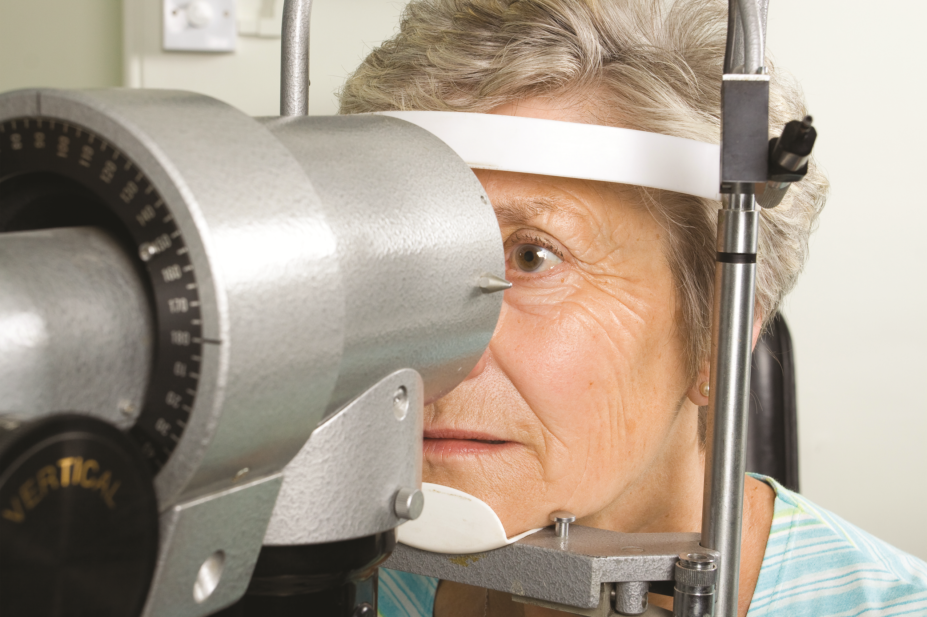
Shutterstock.com
Two drug companies are threatening legal action against NHS doctors in the north east of England over plans to prescribe a cheaper off-label drug to treat wet age-related macular degeneration (AMD) rather than their licensed products.
Twelve clinical commissioning groups (CCGs) across northeast England and Cumbria are planning to offer bevacizumab (Avastin, Roche), which is not licensed for wet AMD, alongside ranibizumab (Lucentis, Novartis) and aflibercept (Eylea, Bayer), which are approved by the UK National Institute for Health and Care Excellence (NICE) for treating the condition in the NHS, an investigation by The
BMJ
revealed.
Use of bevacizumab, the cheaper off-label alternative for wet AMD — a leading cause of blindness among older patients — could save the region’s NHS up to £13.5m a year within the next five years.
If the plan goes ahead, new patients with wet AMD will be told that bevacizumab is the preferred choice, because it is as clinically effective as ranibizumab and aflibercept and far cheaper, but that they are free to have one of the NICE-approved treatments if they wish.
Bayer and Novartis are threatening to seek judicial review of the matter.
In a statement Bayer said: “The principle of using unlicensed medicines when licensed and NICE-approved options are available runs the risk of setting a precedent that undermines the regulatory framework and NHS Constitution.”
The statement added that the policy also conflicted with authoritative guidance and advice from professional bodies “in relation to the limited circumstances in which unlicensed medicines in general and unlicensed bevacizumab in particular, should be used to treat patients”.
Novartis said in a statement that the policy to use unlicensed bevacizumab as the preferred treatment option for patients with wet AMD “is not in line with the current UK and EU legal and regulatory framework, the purpose of which is, among others, to protect patients and monitor the safe, appropriate use of medicines. The framework provides that unlicensed medicines can only be used where there is an unmet medical need. That is not the case here.”
The statement added: “Some information produced by the CCGs about the policy appears misleading and could persuade clinicians and pharmacists to act in accordance with the policy, even if such practice might be in breach of their respective professional obligations.”
Prescribing an off-label drug when there is a licensed alternative goes against prescribing guidance for doctors issued by the General Medical Council (GMC).
“It’s purely the regulatory framework that is stopping bevacizumab’s widespread use in the NHS,” Andrew Lotery, professor of ophthalmology at Southampton University told The BMJ, despite the evidence of its efficacy and safety, and cost-effectiveness.
He added that bevacizumab is routinely used in private practice. “Many insurance companies don’t pay for chronic conditions such as age-related macular degeneration,” he said. “Patients have to pay themselves and so opt for bevacizumab, which is far cheaper than the licensed drugs.”
Assistant director of standards and ethics at the GMC Mary Agnew told The BMJ that the regulator was “sympathetic to the frustrations of doctors and organisations seeking to use resources effectively.”
“We hope that some sort of licensing solution for drugs such as Avastin may be forthcoming, or alternatively that the situation is clarified in the courts to give doctors more assurance about when they can prescribe this drug safely and within the law,” she said.
In 2012, Novartis threatened legal action against a group of primary care trusts on the south coast of England over their plan to use bevacizumab instead of ranibizumab,[ii] but the legal action was halted when the primary care trusts withdrew their policy following a confidential agreement to lower the price of ranibizumab.


